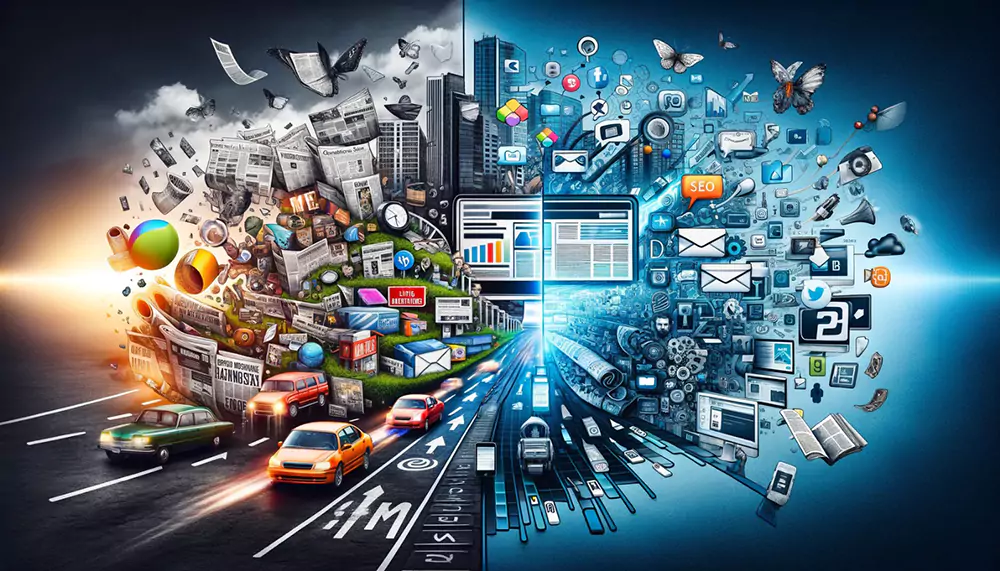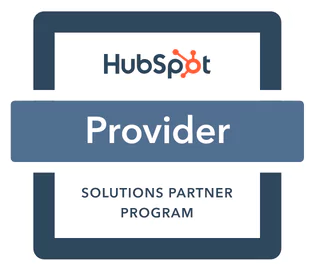
TL;DR
- Digital marketing uses online channels, offering targeted, cost-effective, and measurable advertising.
- Traditional marketing relies on offline channels, with limited targeting and higher costs.
- Digital marketing advantages include cost-effectiveness, targeted advertising, measurable results, increased engagement, and global reach.
- Businesses can unlock new growth opportunities and stay competitive by embracing digital marketing.
Table of Content
1.Introduction: The Evolution of Marketing
2.Digital Marketing vs. Traditional Marketing: Understanding the Shift
• Traditional Marketing
• Digital Marketing
3.The Advantages of Digital Marketing
• Cost-Effectiveness
• Targeted Advertising
• Measurable Results
• Increased Engagement
• Global Reach
4.Conclusion: Embracing the Digital Revolution
The Digital Revolution: How Digital Marketing is Changing the Advertising Landscape
Introduction: The Evolution of Marketing
In today’s fast-paced digital age, the way businesses connect with their audiences has undergone a significant transformation. Gone are the days of relying solely on traditional marketing methods. Instead, businesses are increasingly turning to digital marketing to reach their target markets more effectively and efficiently. Let’s delve into the world of digital marketing and explore how it’s reshaping the advertising landscape.
Digital Marketing vs. Traditional Marketing: Understanding the Shift
Digital marketing represents a departure from traditional marketing approaches such as print ads, television commercials, and billboards. While traditional marketing still has its place, digital marketing offers unique advantages that are difficult to ignore. Let’s compare the two:
Traditional Marketing:
- Relies on offline channels such as print, television, radio, and outdoor advertising.
- Limited targeting capabilities, making it challenging to reach specific demographics.
- Campaign performance is difficult to measure accurately.
- Higher costs associated with production and distribution.
- Less interactive and engaging compared to digital marketing.
Digital Marketing:
- Utilizes online channels such as websites, social media, search engines, email, and mobile apps.
- Offers advanced targeting options, allowing businesses to reach specific audiences based on demographics, interests, and behaviors.
- Provides robust analytics and tracking tools for measuring campaign performance in real-time.
- Generally more cost-effective than traditional marketing methods.
- Enables interactive and personalized engagement with audiences, fostering stronger relationships.
The Advantages of Digital Marketing
Digital marketing offers several distinct advantages over traditional methods:
1.Cost-Effectiveness: Digital marketing campaigns often require lower upfront costs compared to traditional advertising channels. This makes it accessible to businesses of all sizes, from startups to multinational corporations.
2.Targeted Advertising: With digital marketing, businesses can target their messages to specific audience segments, ensuring that they reach the right people at the right time. This precision targeting leads to higher conversion rates and a better return on investment.
3.Measurable Results: Digital marketing provides detailed analytics and reporting tools that allow businesses to track the performance of their campaigns in real-time. This enables them to make data-driven decisions and optimize their strategies for better results.
4.Increased Engagement: Digital marketing enables businesses to engage with their audience in interactive and personalized ways. Whether through social media, email marketing, or content creation, businesses can build stronger relationships with their customers and foster brand loyalty.
5.Global Reach: With the internet connecting people around the world, digital marketing offers businesses the opportunity to reach a global audience. This opens up new markets and growth opportunities that may not be accessible through traditional marketing channels.
Conclusion: Embracing the Digital Revolution
In conclusion, digital marketing is revolutionizing the way businesses advertise and connect with their audiences. Its cost-effectiveness, targeted advertising capabilities, measurability, engagement opportunities, and global reach make it a powerful tool for businesses looking to stay competitive in today’s digital landscape. By embracing the digital revolution, businesses can unlock new growth opportunities and reach their full potential in the digital age.










